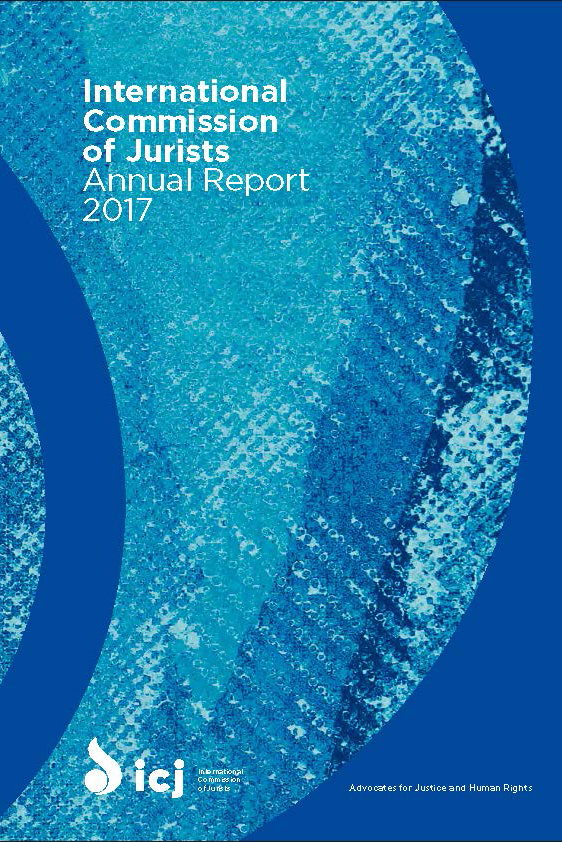The ICJ has issued its Annual Report 2017, which offers a concise summary of the work carried out by the ICJ over the past year.
For over 60 years, the ICJ has played a preeminent role in promoting the rule of law and its implementation internationally and domestically and has worked tirelessly to fight injustices around the globe.
While notable progress has been made over the years, sadly we are now in a period of regression, facing new challenges that are neither East/West nor North/South in origin but are rather global and endemic.
The ICJ, however, has seen this before. After the 9/11 terrorist attacks, many States, including some liberal democracies, adopted counter-terrorism measures that threatened the very core of the international human rights framework put in place since the Second World War, claiming that observance of human rights was no longer convenient.
The ICJ responded to that crisis by establishing an Eminent Jurists Panel whose report clearly identified the issues, reaffirmed the value of human rights and set out clear recommendations to States on how to craft counter-terrorism initiatives that respect basic rights.
Today the concept of the rule of law itself is under attack, and the ICJ, as in the past, is meeting this challenge head on by reasserting core values and principles of human rights law and by seeking to overcome harmful narratives that claim that the system is no longer relevant to individuals.
While the ICJ recognizes the rights system is beset by challenges, we remain deeply committed to enhancing rights protections through tried and tested international frameworks.
The ICJ has had an active 2017 addressing key elements of the rule of law, including the independence of the judiciary, which provides a fundamental safeguard for rights protections and accountability.
We have continued to work towards our vision of a world where everyone is able to exercise her/his rights by working with and on behalf of the most marginalized groups, including displaced inhabitants of the Rakhine state, migrant children and indigenous communities.
We continued to strive against cultures of impunity and ensuring accountability in places such as Cambodia, Myanmar, Nepal, Tajikistan and Tunisia.
Importantly, the ICJ has already had some successes in this work, such as in the ICJ led efforts to advocate against South Africa’s proposed withdrawal from the International Criminal Court.
Last year, the ICJ also convened a forum on customary and traditional justice systems, reported on the failure of States to ensure accountability for renditions operations, actively engaged at the UN on issues such as women’s access to justice, advocated for national reforms, worked with domestic justice systems, provided training for jurists and rights defenders, and continued to denounce clear violations of international norms, such as the use of military courts to try civilians.
The current challenges to human rights and the international legal framework supporting them are grave indeed.
The ICJ by experience and deeds is uniquely qualified to meet these challenges but this will require us to vigorously reaffirm our vision of a rule of law that upholds the dignity and human rights of every person.
Download
Universal-ICJ Annual Report 2017-Publications-Reports-Annual Report-2018-ENG (full report in PDF)

